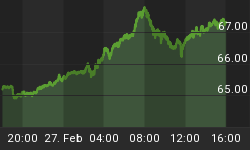It’s fair to say that banks in Mexico don’t have the best reputation. It’s probably fair to say much worse, but we’ll keep it at that for now.
The country’s banking situation is complicated. More people own a cell phone than a bank account, and even those that do have access to banking services face an uphill battle. With only 14 branches per 100,000 citizens, banks are crowded, waiting times are long, and sometimes the nearest branch isn’t near at all.
This has opened the door for a wide range of fintech solutions. From micro-loans and peer-to-peer lending services to remittance companies and only-only banking alternatives, the space is growing faster than regulators could have ever imagined. And traditional banks are scared.
And as the biggest fintech industry in Latin America, with over 238 startups offering their own solutions to the country’s financial hurdles, banks should be scared.
Finnovista, a leading supporter of Mexican fintech startups, reported in a 2017 study that these new companies could take over 30 percent of the country’s banking market in the next 10 years, but things may be accelerating even faster than expected.
Statista estimates the Mexican Fintech market will reach nearly $70 billion by the end of 2018, and the number of users will skyrocket to over 111 million by 2022. Related: Trade War Reports Send Markets Spinning
These developments have forced Mexican legislators to take this new financial revolution seriously.
Fintech law in Mexico
Passed in early March 2018, Mexico’s fintech law received support from every major party, passing with 75 percent of the votes. And though it did place some restrictions on the space, the law was overwhelmingly supportive of the industry as a whole.
The law even provided a loose definition of digital assets: “"...the representation of value registered electronically and used by the public as a means of payment for all types of legal acts and whose transfer can only be carried out through electronic means."
This is important because it opened the door for fintech companies to utilize cryptocurrencies in remittance transactions, a space which accounted for over $28 billion coming into the country, representing 10 percent of Mexico’s total GDP growth in 2017.
Before, these payments carried significant fees and could take days to process, but with the new law, citizens can now access these services through fintech institutions utilizing cryptocurrencies at a lower rate and with much faster processing times.
Another key piece of the law targeted cryptocurrency exchanges.
Under the new law, exchanges were classified as Instituciones de Tecnología Financiera, or ITFs, and fell under the jurisdiction of the Central Bank of Mexico. Because of this, exchanges now require the central bank’s approval to operate. Additionally, the central bank would be the deciding voice on which cryptos are listed, an issue which has received some criticism from crypto-enthusiasts.
Exchanges are also now required to divulge risks associated with their operations, specifically noting that cryptocurrencies are not legal tender recognized by the government or the Bank of Mexico, in addition to notifying customers that reversing transactions may be impossible.
New developments in the fintech law
On July 27th, the Bank of Mexico announced a new addition in the fintech law restricting the near-instant inter-bank transfers of funds within the country utilizing the Sistema de Pagos Electrónicos Interbancarios (SPEI) to cryptocurrency exchanges.
Related: Homeland Security Takes Clear Stance On Russian Hacking
Previously, the transfer or withdrawal of funds to or from a Mexican bank account would be almost instant. But under the new provision, banks must take extra measures to validate the transactions, making the funds available on the next business day.
Fintech in Latin America
As the leader of the fintech movement in Latin America, it’s reasonable to suggest that Mexico is setting a pretty good example. Mexicans are even preparing for the first every Bitcoin Day in the country, to be held in Monterrey.
Though some pieces of its fintech law may be controversial, the country is doing a lot for smaller businesses looking to take on major banking institutions, paving the way for others in the region.
Brazil and Argentina are two others making strides in the space. As countries facing similar banking situations and cell phone availability as Mexico, the case for new forms of finance is abundantly clear.
Though cryptocurrency adoption is still lagging compared to Europe or the United States, these emerging markets are positioning themselves as countries to watch as fintech and cryptocurrencies take on the world.
By Michael Kern via Crypto Insider
More Top Reads From Safehaven.com
















